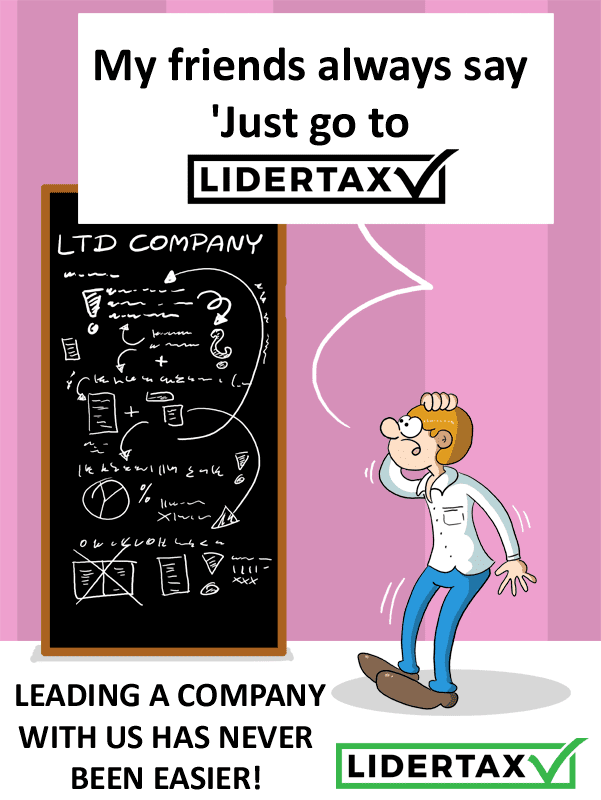
LTD companies are popular in the United Kingdom, with a whopping 93% of all corporate bodies having this structure, which makes you wonder, why is everyone going towards this? Well, that’s because they offer several advantages over other business structures; some of the key ones are:
In this article we will answer a few most common questions:
- Is it worth setting up a limited company?
- Can I set up a LTD company myself?
- What are the requirements for setting up a limited company?
- What are the pros and cons of a LTD company?
1. They’re Easy & Straightforward to Set Up
Private Limited Company (LTD) are a popular business structure for new entrepreneurs. They’re simple to set up, fast-paced to operate and tax-efficient – making them the ideal option for startups.
Setting up a private limited company is simple – all you need is a valid trading name, directors personal details and some limited liability company set-up costs, which will depend on the type of structure chosen. However, it can be done for as little as £120.
Moreover, the formation process of a private limited company now is a lot faster to complete than it used to be – thanks to the Companies Act 2006 coming into full effect. We’ve seen the whole set-up done in 10 minutes or less. Everything from filing paperwork to registering with Companies House (the national registry of companies) can be done quickly.
The best part is that even self-employed individuals such as eCommerce sellers or freelancers can also form an LTD. This will allow them to enjoy enormous tax benefits and liability minimization.
2. LTD Company has its own legal personality
As a legal entity, a limited company has its own personality and is separate from the individual owners or shareholders. This offers a myriad of benefits, including the continued operation of the company in case of the death of any shareholder or director.
Furthermore, when 3rd parties go into a contract, they deal with the company and not the individual owners or shareholders.
3. Limited personal liability
When starting a business, the limited personal liability offered by a company structure is an immense advantage. You are not personally liable for all the debts and obligations of the company (a big relief). This is because your liability is capped at the amount paid for your shares. This can be helpful in avoiding any financial losses in case of business failure.
Moreover, if the company or shareholder has not committed any fraud, then shareholders will be shielded from any legal liabilities.
4. Potential tax advantages
A private limited company offers a tax advantages structure that has different benefits when compared to sole traders and partnerships. Firstly, limited liability companies pay corporation tax at a rate of 19%.
Plus, if you’re the shareholder or director of the company, you can draw income from your business through dividends. And for your role in the company, you only take a small salary home. Doing this, you can minimize the NICs (National Insurance Contributions) because the limited company dividends are free from NIC obligations. This means more money coming home!
As mentioned earlier, there are disadvantages associated with being in business as a sole trader. One such drawback is that your total income depends on NIC regulations – which could change at any time.
On the contrary, owning an LTD allows you to expand your business without worrying about personal finances getting too stretched. Doing so increases your chances of success in today’s competitive marketplaces.
5. Easy to Sell the Business in Future
If you selling the business in the future, there are a few advantages that come with limited company status. The company’s original owner can achieve a clean break. They may also get some financial benefit to fund his/her future lifestyle or launch another venture.
Plus, if a shareholder dies or retires, company’s transfer of ownership is easier as compared to an unregistered business structure.
You may also get benefits from Business Asset Disposal relief (previously known as Entrepreneurs’ relief) at the time of the business’s sale. This can provide a reduction in Capital Gains Tax when a business or asset is sold.
6. Various Shareholder Classes
As an LTD company, you can structure your company in a number of ways, depending on your needs and preferences. For example, you can have one or more shareholders – such as ordinary shareholders, redeemable shareholders or preference shareholders etc. – and decide on separate classes of shares for different types of investors.
You can also outline the responsibilities and duties of every shareholder in a shareholders’ agreement, ensuring there’s no injustice done to anyone.
7. LTD company = increased credibility
A company’s credibility is one of its most important assets. The disadvantages of limited companies are few, but their advantages in terms of tax liability, control over the business, and separation from personal life are quite significant. In the UK specifically, limited companies enjoy a good reputation due to their flexible nature. Plus, most businessmen prefer them due to their ability to provide legal protection from personal liabilities for shareholders.
Having an LTD structure shows that a business is committed to responsible and effective management and holds permanence. Many businesses, including large companies, will not deal with a business that doesn’t have LTD formation. Therefore, forming one can offer company owners various new opportunities.
What is Required to Set up a LTD Company in the UK?
To set up a limited company in the UK, business owners must follow some steps. These may include gathering the appropriate paperwork, registering the company with the government, and paying initial company fees. Here are a few necessary steps you may need to take:
- Select a business name that’s not already been registered and/or infringes on others’ rights
- Appoint directions to the company (you can also appoint a secretary if you wish)
- Decide who should be the members or shareholders
- Prepare all relevant documents stating how your company will operate
- Check all your administrative responsibilities
- Register the company with Companies House
If you are not entirely sure where to start or these steps seem confusing, it is always a great idea to get in touch with a professional and certified accountant. They have the expertise to ensure your LTD formation process goes smoothly and you don’t break any laws.
LTD Company – Parting Words
Limited companies also offer a more secure structure when compared to sole proprietorships and partnerships. Not only will you be able to protect your assets better, but you will also have more earnings left over after expenses – which could give you an edge over other businesses in your field.
Therefore, as a business looking to seize all these benefits, you should consider forming an LTD or at least talk to an expert accountant to advise you better.



